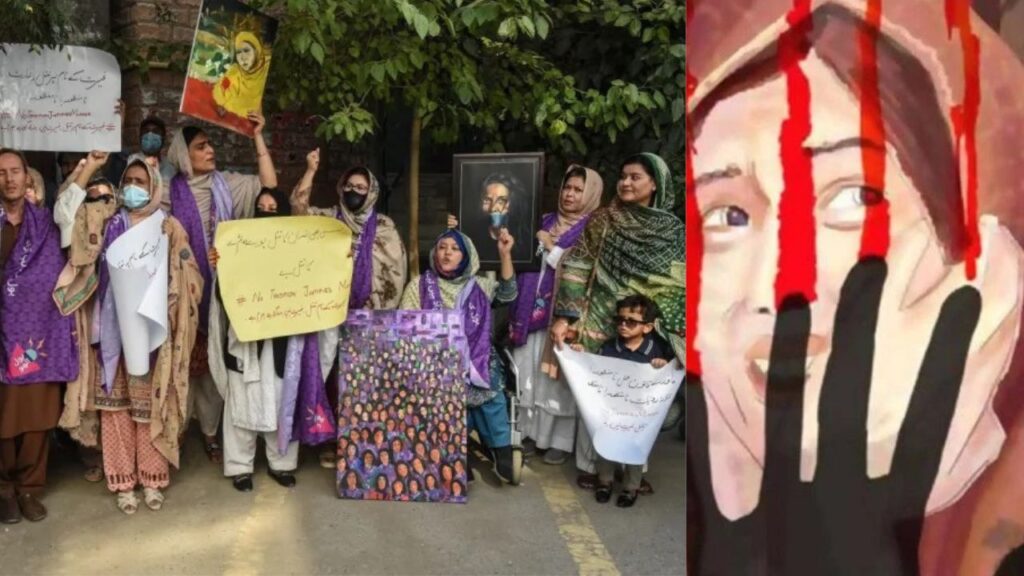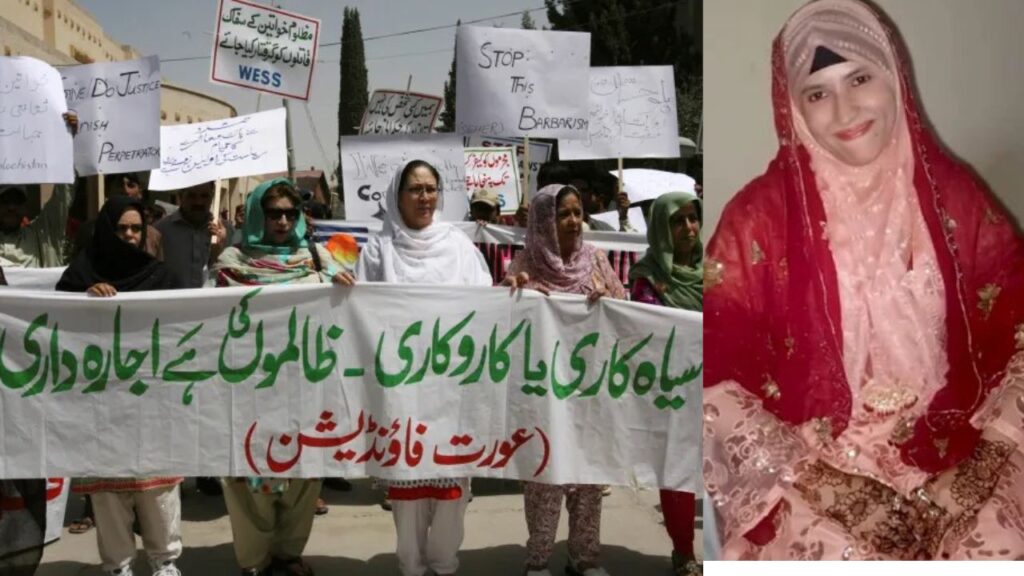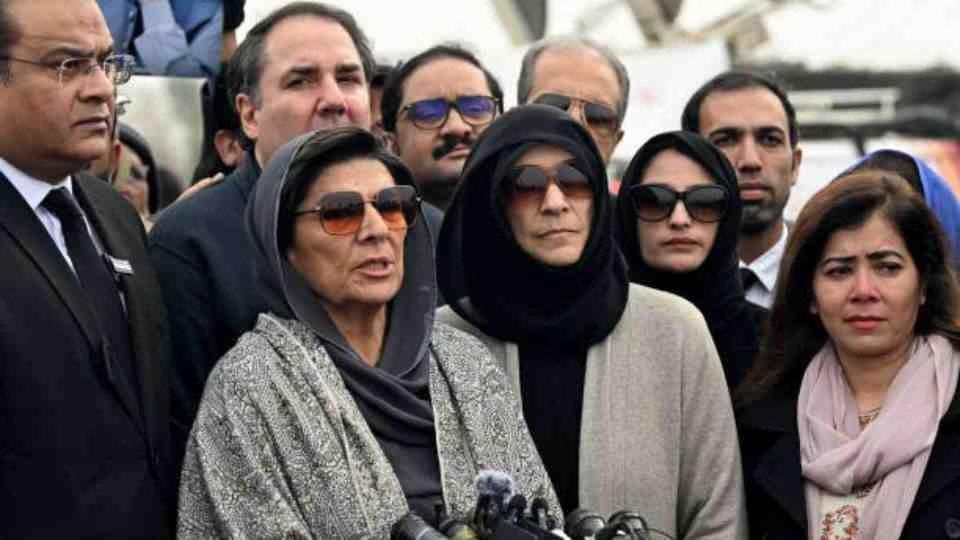“Jirga head confesses to killing woman himself in Rawalpindi” refers to a disturbing case of an honor killing in Pakistan, where Ismatullah, the head of a local jirga (tribal council), admitted to murdering his cousin, Sidra Arab, in Rawalpindi’s Pirwadhai area. Below is a detailed overview of the incident based on the provided information and additional context from related sources.
Key Details of the Case
- Victim and Incident: Sidra Arab, a 19- to 21-year-old woman (age varies across reports), was killed on July 16 or 17, 2025, in what is suspected to be an honor killing prompted by a jirga’s decision. The jirga, a traditional assembly often criticized for extrajudicial rulings, convened to address Sidra’s actions, which were deemed to have brought “dishonor” to her family, primarily due to her consensual second marriage to a man named Usman in Muzaffarabad.
- Confession by Ismatullah: Ismatullah, a former Union Council Vice Chairman and local trader affiliated with the PML-N, confessed to personally killing Sidra. He revealed during police interrogation that he forcibly entered the home of Sidra’s second husband, Usman, in Muzaffarabad, armed with a Kalashnikov. He kidnapped Sidra under gunpoint and brought her back to Rawalpindi, where she was murdered following the jirga’s verdict. Ismatullah admitted to burying her body in Chatti Graveyard in Pirwadhai, with efforts made to conceal the grave to destroy evidence.
- Accomplices and Burial: Ismatullah named Saleh Muhammad, Amani Gul, and others as being present during the murder. The burial took place on July 17, 2025, at approximately 5:30 AM during heavy rainfall, which aided in concealing the crime. The body was transported in a loader rickshaw owned by Sidra’s uncle, Mani Gul, and driven by Khayal Muhammad. The grave was deliberately leveled to erase any signs, and the burial receipt (no. 78) was removed from cemetery records to cover up the crime.
- Cause of Death: A post-mortem conducted after the exhumation of Sidra’s body on July 28, 2025, revealed she was subjected to severe torture before being strangled, likely with a pillow. Initial findings noted broken neck bones, a protruding tongue, and signs of suffocation, confirming strangulation as the cause of death. Tissue samples were sent to the Punjab Forensic Science Agency in Lahore for further analysis.
- Illegal Weapon Charge: During interrogation, Ismatullah provided details about the Kalashnikov used in the kidnapping and murder. He failed to produce a license for the firearm, leading to a separate FIR being registered against him for illegal possession of a weapon.
- Suspects in Custody: Nine suspects have been arrested, including Ismatullah (jirga head), Arab Gul (Sidra’s father), Zafarullah (her brother), Amani Gul (her uncle), Saleh Muhammad (her father-in-law), Zia-ur-Rehman (her first husband), Khayal Muhammad (rickshaw driver), Rashid Mehmood (gravedigger), and Saifur Rehman (cemetery committee secretary). Six of them, including Ismatullah, were granted a four-day physical remand on August 6, 2025, for further investigation, while others, like the gravedigger and cemetery secretary, were placed in judicial custody at Adiala Jail.
- Background of the Case: Sidra had married Zia-ur-Rehman, her first husband, on January 17, 2025, but faced pressure from her family, reportedly over a forced marriage. She left for Muzaffarabad and consensually married Usman on July 12, 2025, after completing her iddat period (a mandatory waiting period after divorce in Islamic law). Sidra appeared before a judicial magistrate in Muzaffarabad, confirming her marriage to Usman was consensual and expressing fear for her life, requesting court protection. Despite this, on July 16, armed jirga members, led by Ismatullah, forcibly took her from Usman’s home under the pretext of a “respectful farewell.” She was killed the following day.
- Investigation and Evidence: The case came to light after a tip-off to Pirwadhai police about a secret burial. Police recovered CCTV footage from the graveyard, the loader rickshaw, burial tools, and a tampered cemetery register. The investigation expanded to include all jirga members, with a police team traveling to Muzaffarabad to verify Sidra’s marriage to Usman and record statements from his family. Usman surrendered to police on July 27, 2025, providing the marriage certificate and seeking protection, fearing retribution.

Broader Context and Critical Analysis
- Honor Killings in Pakistan: This case highlights the persistent issue of honor killings in Pakistan, with the Human Rights Commission of Pakistan (HRCP) reporting 405 such cases in 2024 alone. Jirgas, though illegal under Pakistani law, continue to operate in some communities, issuing extrajudicial verdicts that often target women for perceived violations of family or community honor, such as consensual marriages.
- Role of Jirgas: The jirga’s decision in this case reflects a patriarchal system that prioritizes tribal customs over legal protections. Despite Sidra’s documented fears and legal marriage to Usman, the jirga’s authority was upheld by her family, leading to her brutal murder. The involvement of a former local official like Ismatullah underscores how such practices can persist even among those with political influence.
- Police and Judicial Response: The swift police action, including arrests, exhumation, and forensic analysis, indicates an effort to address the crime. However, the initial cover-up attempt by Sidra’s first husband, Zia-ur-Rehman, who filed a misleading FIR claiming she had eloped with jewelry and cash, points to challenges in uncovering such crimes. The judicial system’s approval of exhumation and physical remands suggests a commitment to pursuing justice, but the case also exposes systemic issues in protecting women from honor-based violence.
- Public and Activist Response: The incident has sparked public outrage, with activists demanding strict action against illegal jirgas and stronger measures to combat honor-based violence. The case has also drawn attention to the need for better protection for women who face threats for exercising their right to choose their partners.
Unanswered Questions and Critical Perspective
While the sources provide a detailed account, some inconsistencies remain, such as Sidra’s age (reported as 17, 19, or 21) and the exact roles of all suspects. The establishment narrative, as presented in the media, focuses heavily on the jirga’s role and the confessions, but it’s worth questioning whether all involved parties have been fully identified or if deeper societal or political influences are at play, given Ismatullah’s reported PML-N affiliation. The reliance on jirgas, despite their illegality, suggests a gap in state authority in certain areas, which deserves further scrutiny.
Conclusion
The murder of Sidra Arab is a tragic example of honor-based violence facilitated by an illegal jirga in Rawalpindi. Ismatullah’s confession to kidnapping and killing his cousin, coupled with the involvement of family members and local facilitators, reveals a coordinated effort to enforce patriarchal norms through violence. The ongoing investigation, with multiple arrests and forensic evidence, aims to deliver justice, but the case underscores the urgent need to address the systemic issues enabling such crimes in Pakistan






